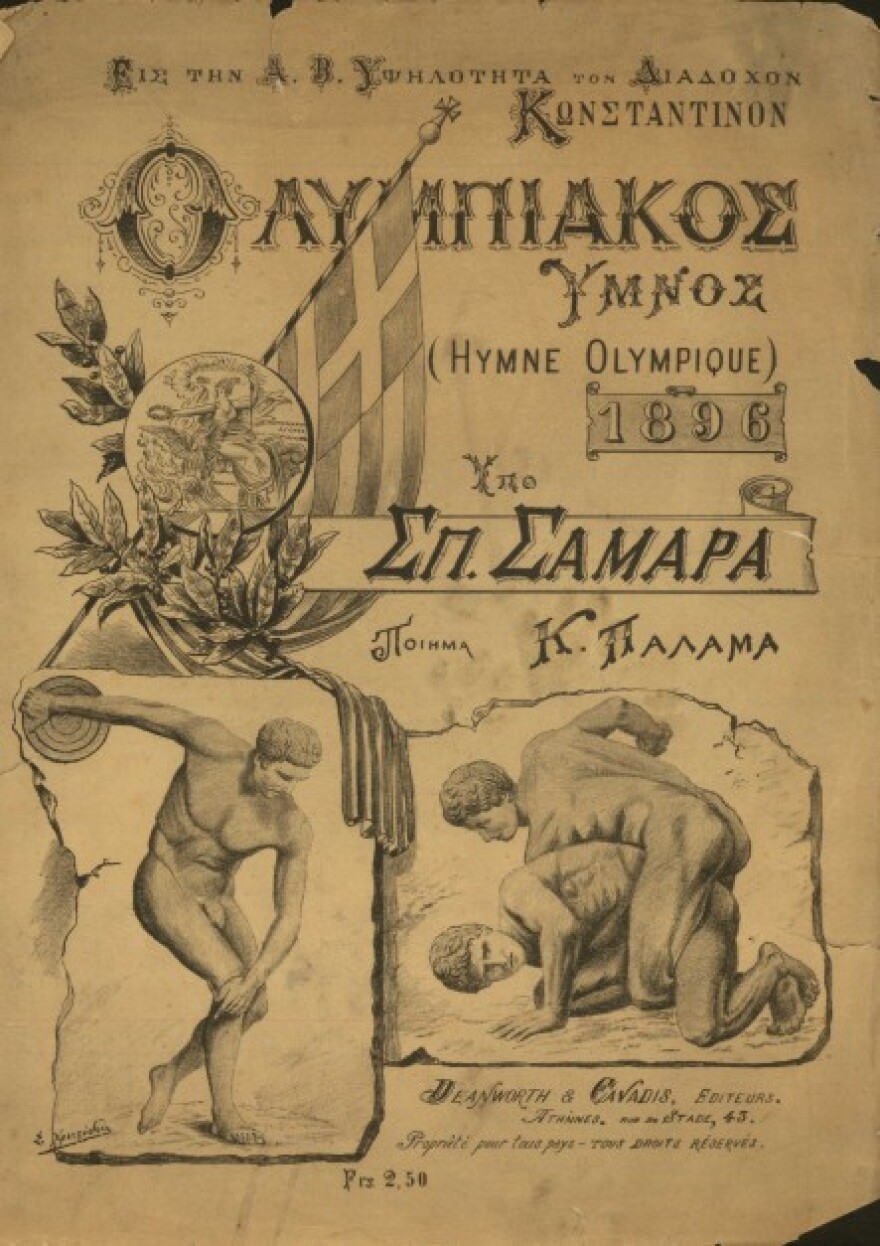The 1984 Olympic anthem composed by John Williams has become synonymous with the image of the modern Olympics, and for good reason. But what about the other anthems such as the classic Bugler's Dream by Léo Arnaud, or Vangelis's theme from Chariots of Fire? The history of music composed for the Olympics is actually a bit more winding than people realize.
Modern Olympic Favorites
https://www.youtube.com/watch?v=TYJzcUvS_NU
I'm not sure the smoking cigarette would make an appearance in an Olympic anthem music video today, but hey, 1982 was a different time and Vangelis was definitely a very... um, different composer. Nonetheless, his music is one of the of the three contemporary pieces most Americans recognize as The Olympic themes.
https://www.youtube.com/watch?v=MCqUESCoB1w
Since all three themes are often played at different times and by different television stations during the games, I wondered which one is actually the most familiar, or even the favorite. The Classical 101 Facebook followers decided in an online poll that Bugler's Dream and John Williams' Olympic Fanfare and Theme are indeed tied.
Of course, there is a loophole to this question since the typical version of Arnaud's theme from 1996 onward actually cuts to Williams' composition at the 48 second mark... NBC created the amalgam for the modern games' centennial celebration. The pieces were joined together in the same key and instrumentation to allow NBC to broadcast either piece without any jarring musical "seems."
Be sure to listen to The American Sound with Jennifer Hambrick this Saturday (August 6th) and next Tuesday (August 8th) for even more great music by American composers inspired by the world's most renowned sporting competition.
Early Olympic Music
So, what about even earlier music for the Olympics? Certainly they must have had some lyres or something, right?

Well, before going all the way back to ancient Greece, there was actually a Greek Olympic hymn composed by Spyros Samaras, but it was written for the first modern Olympic games in 1896.
The "Olympic Hymn," is played and sung at every ceremony in which the signature Olympic flag is raised or lowered, but many Americans are unfamiliar with the piece since it is not typically broadcast at any other time as background or incidental music on American television stations.
Ancient Greek Roots
Early Music has always fascinated me; it's elusive, there are often mixed receptions to its performances because the sounds and techniques are often somewhat alien to our ears, but when it can be recaptured it is an incredible hallmark from the past.
Much of what musicologists know about ancient Greek music comes from the writings of philosophers such as Plato (who actually complained about new music he disliked) and mathematicians such as Pythagorus.

Music of the very first Olympics would have followed strict guidelines called ethos, which outlined what was permissible in composition. The Greeks believed that the differing modes had various "moral characters" that would deeply affect listeners.
You've probably heard of Dorian, Phrygian, Aeolian, Mixolydian, Lydian, Ionian, and Locrian modes at some point before, but it may come as a shock to realize that only certain pieces of music would have been deemed emotionally suitable for the early Olympic games.
It would be as if the International Olympic Committee declared that music by Enya were simply too soft and sentimental to ever be played in the arena, but only because of the key in which it was written. It sounds a little odd, but then again it is quite unlikely that we will ever hear a purely atonal or hexatonic piece played in a stadium, isn't it?
So what did this music actually sound like?
In his description of how music should sound in his Laws , Plato writes:
...The lyre should be used together with the voices...the player and the pupil producing note for note in unison, Heterophony and embroidery by the lyre—the strings throwing out melodic lines different from the melodia which the poet composed; crowded notes where his are sparse, quick time to his slow...and similarly all sorts of rhythmic complications against the voices—none of this should be imposed upon pupils...
Here's a tiny snapshot of how this might have sounded in person:
https://www.youtube.com/watch?v=TWZH_h_7oMU
Curious about more early Greek music? Check out these resources:
http://www.oeaw.ac.at/kal/agm/
http://www.tonalsoft.com/monzo/aristoxenus/aristoxenus.aspx
https://archive.org/stream/aristoxenouharm00arisgoog#page/n4/mode/2up
http://eamusic.dartmouth.edu/~larry/published_articles/divisions_of_the_tetrachord/index.html
And definitely check out former OSU professor Dr. Charles Atkinson's book A Critical Nexus.
Sorry, I don't lend my copy.



